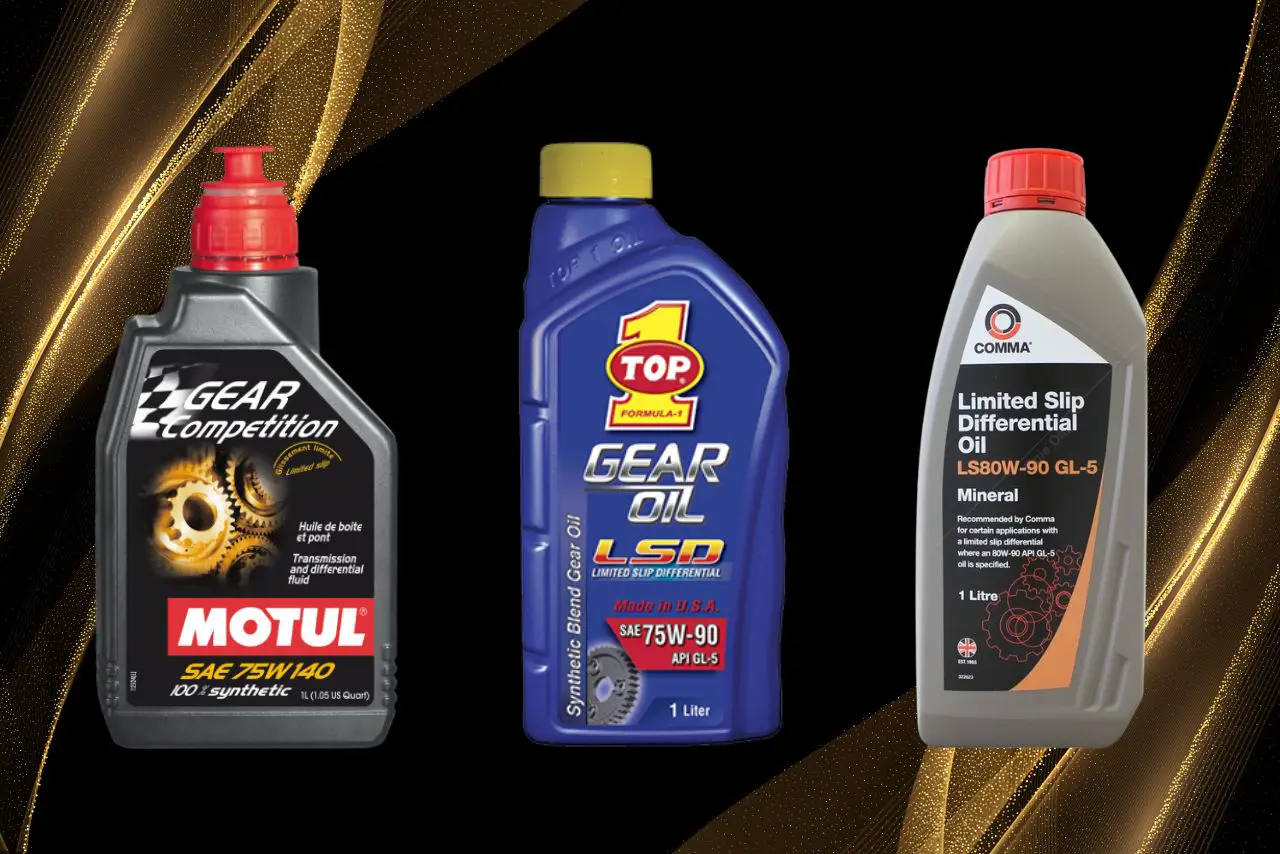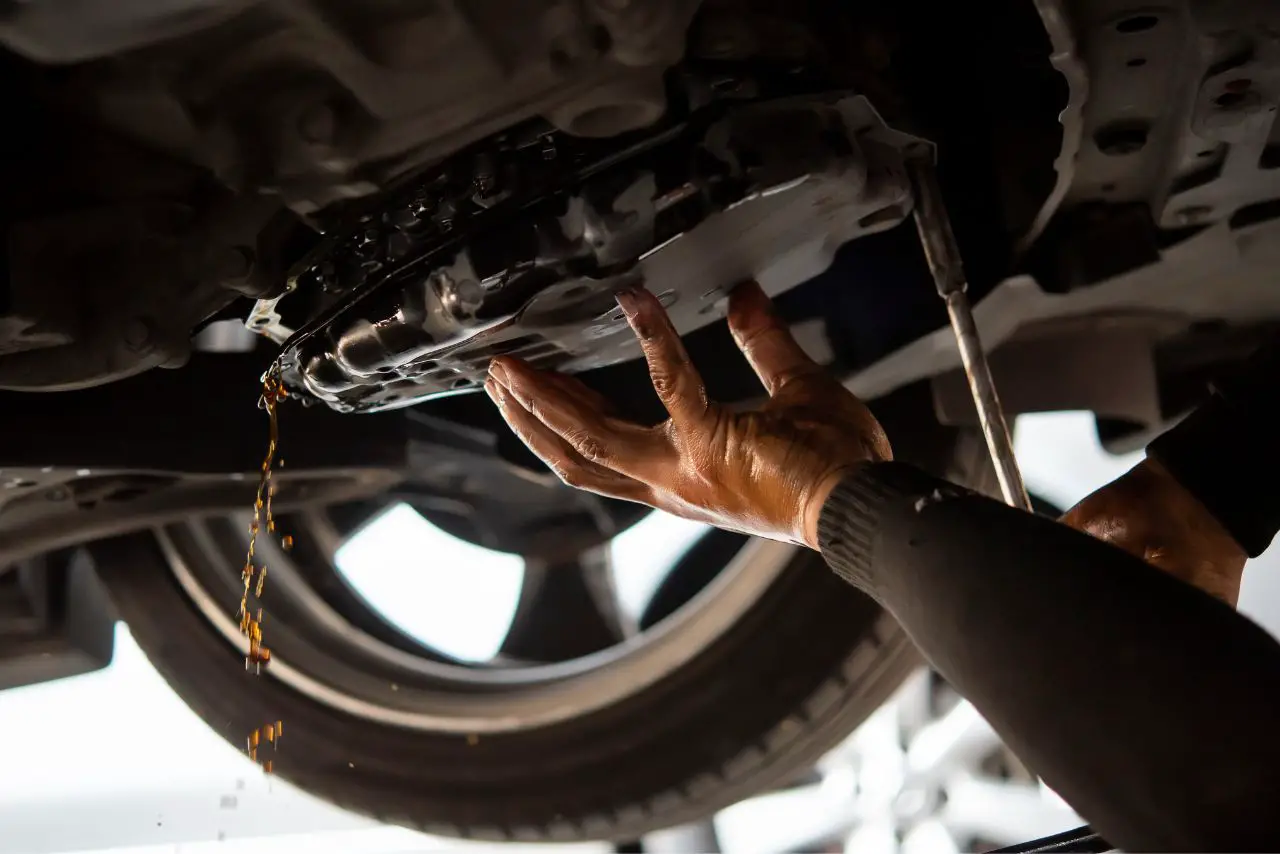If you’re a gearhead or just someone who wants to take good care of your vehicle, you know that regular maintenance is key.
One part of that maintenance involves checking and changing the fluids in your car or truck. But what about gear oil? Does it expire like other lubricants?
In this article, we’ll explore the facts about lubricants and motor oils, including how long they last and what factors can impact their shelf life so that you can ensure your vehicle stays in top shape for years to come!
To determine if a lubricant is past its shelf life, check for a few key indicators. Industrial and automotive lubricants should be discarded if the seal is broken.
Additionally, look for a cloudy appearance, strong, unnatural odors, significant sediment buildup, and excessive oil separation (for greases).
Does Gear Oil Expire? Generally, lubricants have a shelf life of five years. Manufacturers recommend replacing them if the seal is broken or any of the aforementioned signs are present.
Doing so will ensure that your lubrication is effective and safe to use.
Does Gear Oil Expire?
While gear oil is essential for the lubrication and protection of your vehicle’s transmission, you might be wondering if it expires. The answer is yes, gear oil does expire, just like other types of motor fluids.
Gear oil can last up to several years, depending on factors like the type of gear oil and how it has been stored. However, oxidation and synthetic additives can cause gear oil to go bad over time.
When gear oil expires, it can lead to a breakdown in lubrication and an increase in friction between moving parts.
This can cause damage to your engine or transmission over time. But how do you know if your gear oil has expired? Let’s take a closer look at some key indicators of expired or degraded gear oil:
- Smell: If the smell seems off or strong compared to when the fluid was first used.
- Visual Inspection: Check for cloudiness or grainy particles settled within.
- Viscosity test: Measuring density which might not measure same value as when bought new.
If you notice any of these signs that suggest that your fluid has gone bad then replace it with fresh one immediately as continuing with used ones would not only damage inner parts but also compromise their functioning too!
The Importance of Gear Oil for Your Vehicle:
Proper lubrication of a vehicle’s engine and transmission is essential for preventing wear and tear on the gears, bearings, and other moving parts.
Gear oil is specifically designed to provide lubrication to the gears in manual transmissions, transfer cases, and differentials.
Using expired gear oil can lead to inadequate lubrication which can cause damage to the gears and bearings. This can result in costly repairs or even replacement of the entire component.
Regularly changing your gear oil will also help ensure that you’re not using expired fluid which might be ineffective due to factors such as oxidation or temperature changes.
Remember that storing your gear oil properly is just as important as using fresh fluid.
What Happens When Gear Oil Expires?
Transmission fluids like gear oil are designed to last for a specific period of time. However, after being exposed to various conditions such as oxidation and temperature changes, transmission fluid will eventually expire.
When gear oil expires, it becomes less effective in lubricating the gears and other parts of the transmission system.
With expired gear oil, you may experience poor shifting performance or even complete transmission failure.
The old and ineffective lubricant can damage your vehicle’s engine by producing heat caused by constant friction between the metallic parts of the transmission system that need proper lubrication.
Moreover, expired gear oil might also cause rust formation that could lead to further damages beyond just poor shifting performance and eventual failure Transmission systems.
Factors That Affect Gear Oil Shelf Life
There are several factors that can affect the shelf life of gear oil, including its type and storage conditions.
Type of gear oil: Different types of gear oil have different compositions, and some may have a longer shelf life than others.
Synthetic gear oils typically last longer than conventional ones and might be good for up to 7-8 years or more depending on the brand.
Storage conditions: How you store your gear oil can also impact its shelf life.
For example, if it’s exposed to high temperatures or too much humidity, the additives in the lubricant can start to break down faster than they would at room temperature with moderate humidity levels.
It is important to keep containers sealed from oxygen and carbon dioxide which will impact viscosity over time.
Type of Gear Oil
The type of gear oil you use in your vehicle can play a significant role in determining its shelf life.
Conventional gear oils typically have a shorter shelf life than synthetic gear oils due to the difference in their chemical makeup.
Synthetic gear oils often include additives that help prolong their lifespan and reduce the risk of oxidation, which can cause them to expire sooner.
If you’re unsure about what type of gear oil is right for your vehicle, consult your owner’s manual or speak with a qualified mechanic for recommendations.
Using the wrong type of oil can affect lubrication and potentially lead to major issues with your engine or transmission down the line.
Storage Conditions
Proper storage conditions are essential for extending the shelf life of any lubricant, including gear oil. Factors such as temperature, humidity, and light exposure can affect how long gear oil lasts.
When storing gear oil, keep it in a cool, dry place away from direct sunlight and other heat sources.
A consistent temperature between 32°F and 75°F is ideal for maintaining the quality of your gear oil. High temperatures can cause oxidation and breakdown of additives that can impact performance.
Be careful when storing gear oil outdoors or in areas with high levels of moisture or dust.
Exposure to water might lead to contamination, which could damage the engine once used for lubrication.
How to Determine if Gear Oil Has Expired?
If you’re not sure whether your gear oil has expired, there are a few ways to determine its condition. These include:
Smell Test
One way to determine if your gear oil has expired is through a simple smell test. Over time, the oil’s additives can break down and cause it to have an off or rancid odor.
If you notice a strong, unpleasant smell coming from your gear oil, it might be expired.
However, keep in mind that while a bad smell can be a sign of expired gear oil, not all odors indicate expiration.
For instance, some types of synthetic gear oils often have a stronger odor due to their additives.
To get better accuracy with this method:
- Compare the smell of the old gear oil with that of new and fresh one.
- Smell just after opening the lid; air molecules make their way into opened bottles and will begin reacting with the lubricant.
- A foul or sulfur-like scent signifies oxidation.
Keep in mind other methods such as visual inspection and viscosity tests when testing for expiry as well.
Visual Inspection
One easy way to determine if your gear oil has expired is through a visual inspection.
Over time, oxidation can cause the oil to become darker in color, almost like a black tar. If you notice that your gear oil has changed in color and consistency, it might be time for a change.
Additionally, check the condition of the container itself. Containers that are bulging or leaking could indicate that the lubricant has expired and shouldn’t be used.
When performing a visual inspection, make sure to also look for any sediment buildup or separation of additives from the base oil.
Any significant changes in texture or appearance could be an indication that your gear oil is no longer effective for proper lubrication.
Viscosity Test
Another way to determine if your gear oil has expired is by performing a viscosity test. Viscosity refers to the thickness or fluidity of the oil, and it can change over time due to oxidation or contamination.
To perform a viscosity test, start by warming up the gear oil to its operating temperature. Then, take a small sample of the oil and pour it onto a clean surface at a constant rate.
Observe how quickly or slowly the oil flows and compare it to new, unused gear oil of the same type.
If there’s a significant difference in flow rate between your used gear oil and fresh gear oil, then it’s likely that your used gear oil has expired.
The Consequences of Using Expired Gear Oil
Using expired gear oil can have serious consequences for your vehicle’s engine and your safety.
The additives in the oil might break down over time, which can lead to oxidation and a drop in lubrication quality.
As a result, you might experience increased wear on the gears of your transmission or other parts of your vehicle.
This could cause damage that requires costly repairs or even total replacement of the affected components.
Furthermore, using expired oil can also affect the performance of your vehicle, leading to decreased fuel efficiency and reduced power output.
In some cases, it may even cause dangerous driving conditions if critical parts fail while you’re on the road.
How to Store Gear Oil Properly?
Gear oil should be stored in its original container in a cool, dry place away from direct sunlight and extreme temperature changes.
Make sure that containers are properly sealed to protect the oil from oxidation and contamination.
In addition, when storing gear oil outdoors, try to keep it away from any sources of dust or dirt that could get into the container and potentially damage your vehicle’s engine.
Finally, remember that gear oil is flammable, so it should always be kept away from any sources of heat or fire.
Temperature
The temperature at which you store your gear oil plays a crucial role in determining its shelf life.
Both high and low temperatures can affect the quality of the oil, causing it to break down and expire prematurely.
Ideally, gear oil should be stored in a cool, dry place with a consistent temperature between 32° and 75° Fahrenheit.
Temperatures outside of this range could cause oxidation or deterioration of synthetic additives, leading to reduced lubrication properties.
Humidity
Humidity is another factor that can affect the shelf life of gear oil. High humidity levels can cause water to accumulate in the container, which can lead to oxidation and contamination of the oil.
Water in the oil may eventually lead to corrosion within the transmission or engine if not addressed properly.
To prevent this from happening, store your gear oil containers in a cool, dry place with low humidity levels. Avoid exposing them to any sources of moisture, such as rain or snow.
Light Exposure
Light exposure can also affect the shelf life of gear oil. As with lubricants, it’s best to store gear oil in a dark place to prevent light from changing its appearance and color.
When exposed to light for prolonged periods, the oil may start to break down due to oxidation, leading it towards becoming expired.
In addition, the type of container used for storing lubricants or motor oils is essential.
Metal containers are preferable as they offer strength and resistance against external factors that might cause oxidation and other detrimental effects.
Clear plastic containers should be avoided because they allow too much light into them.
Bottom Line: Does Gear Oil Expire?
While gear oil does not technically expire like food or medicine, it can still degrade and lose its effectiveness over time.
The shelf life of gear oil depends on various factors such as the type of gear oil, storage conditions, and whether the container has been opened or not.
It’s important to always check for signs of oxidation, sediment buildup, and any changes in color or consistency before using gear oil to ensure that you don’t end up causing damage to your vehicle’s engine.
When storing gear oil, make sure to keep it in a dry location away from direct sunlight with consistent temperatures.




